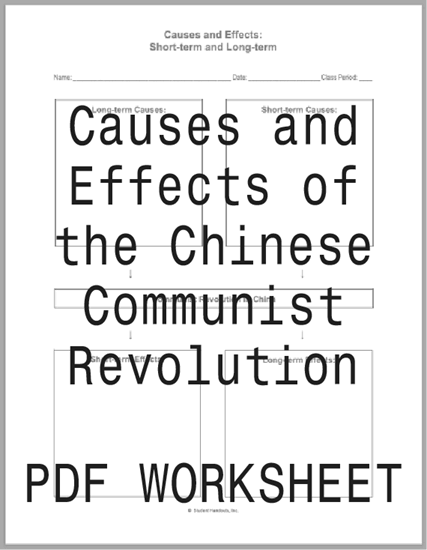Click here to print (PDF file). Answers will vary.
Short-term Causes: The immediate causes of the Communist Revolution include the economic instability and social unrest following World War II. The Chinese Civil War (1945-1949) between the Nationalist Kuomintang (KMT) and the Communist Party of China (CPC) was pivotal. Corruption and inefficiency within the KMT government led to loss of public support, while the CPC gained popularity by promising land reform and mobilizing the peasantry.
Long-term Causes: Long-term causes trace back to the early 20th century, including the fall of the Qing Dynasty and the influence of Marxist ideology. Economic inequality and the exploitation of peasants fostered resentment against feudal structures. The impact of imperialism and the May Fourth Movement of 1919 also fueled desires for modernization and national rejuvenation, contributing to the revolution's ideological foundation.
Short-term Effects: The revolution resulted in the establishment of the People's Republic of China (PRC) in 1949, led by Mao Zedong. Land reforms and nationalization of industries were rapidly implemented.
Long-term Effects: The revolution profoundly altered China's political, economic, and social landscape, transforming it into a communist state. It led to policies such as the Great Leap Forward and the Cultural Revolution, with significant impacts on Chinese society and economy. Internationally, the revolution shifted the global balance of power, influencing Cold War dynamics and contributing to the spread of communism in Asia.
|













